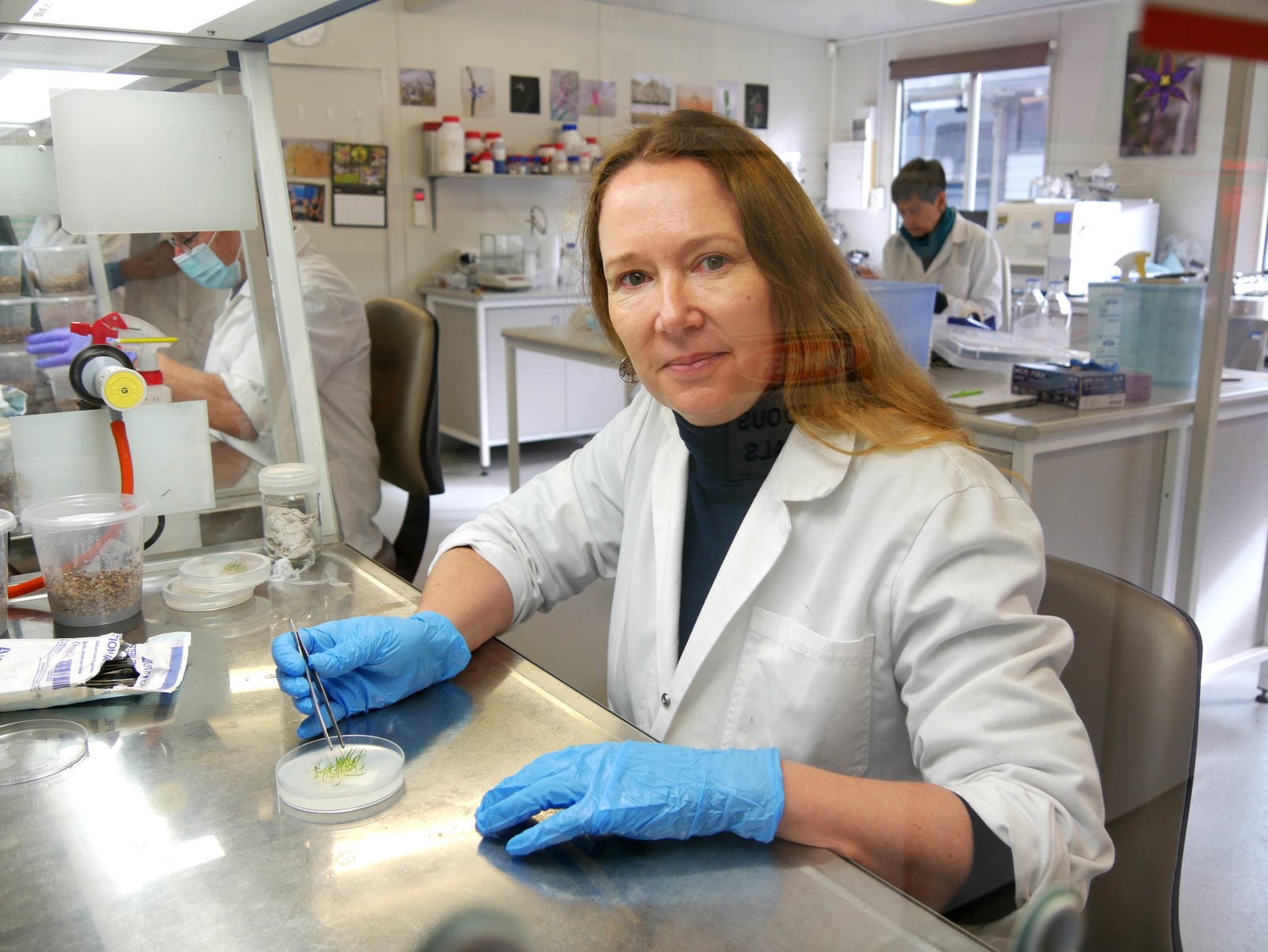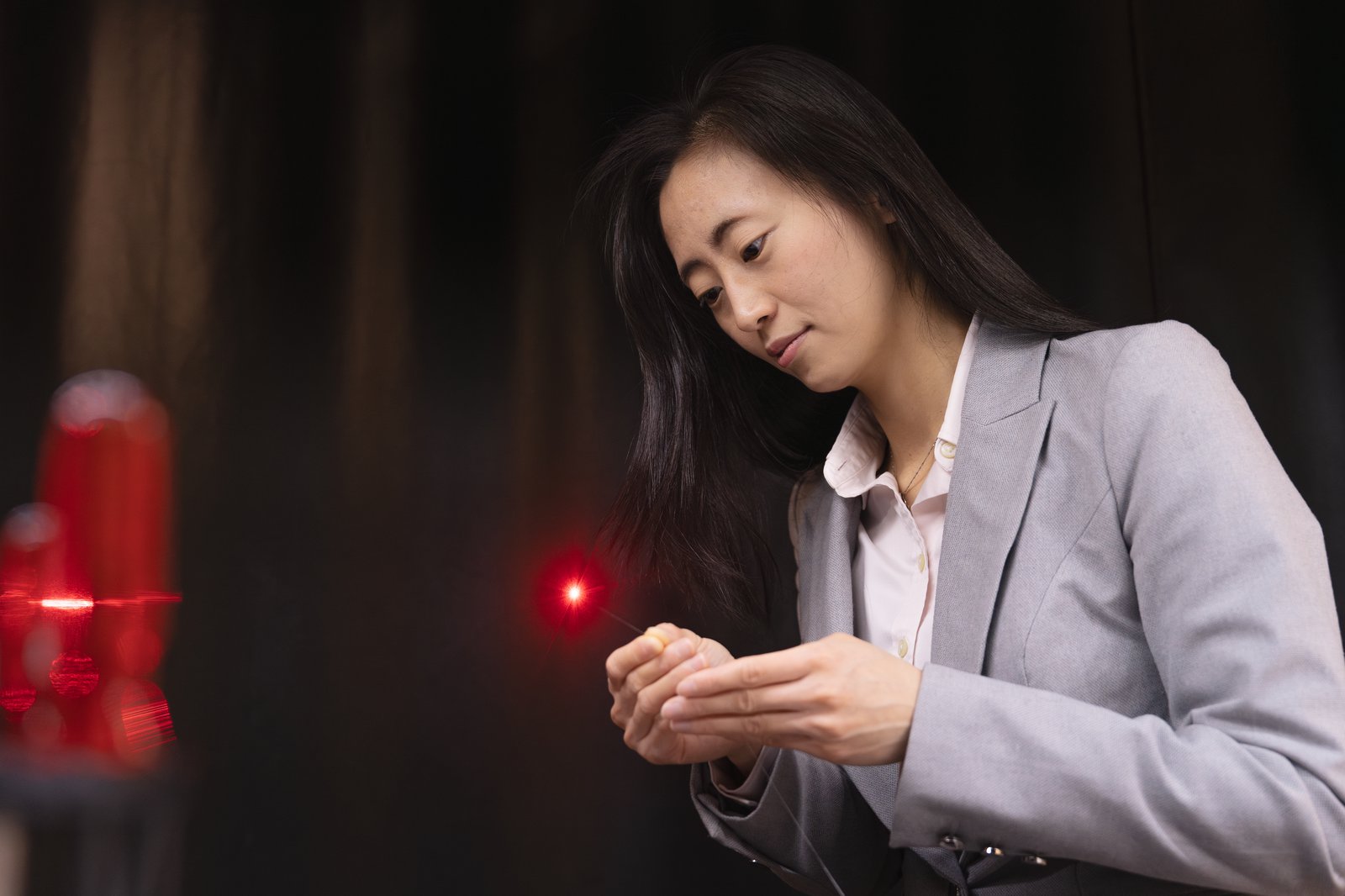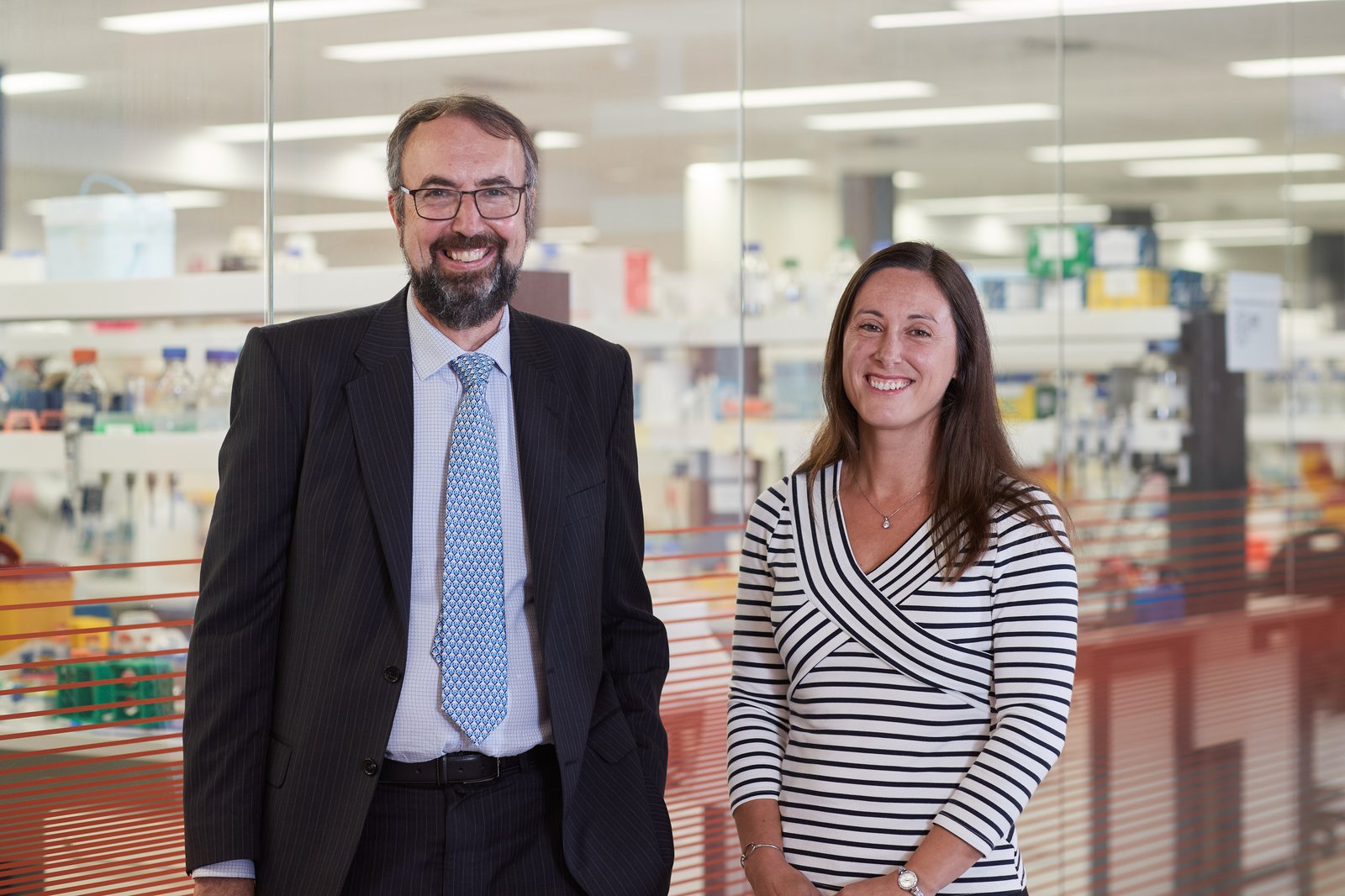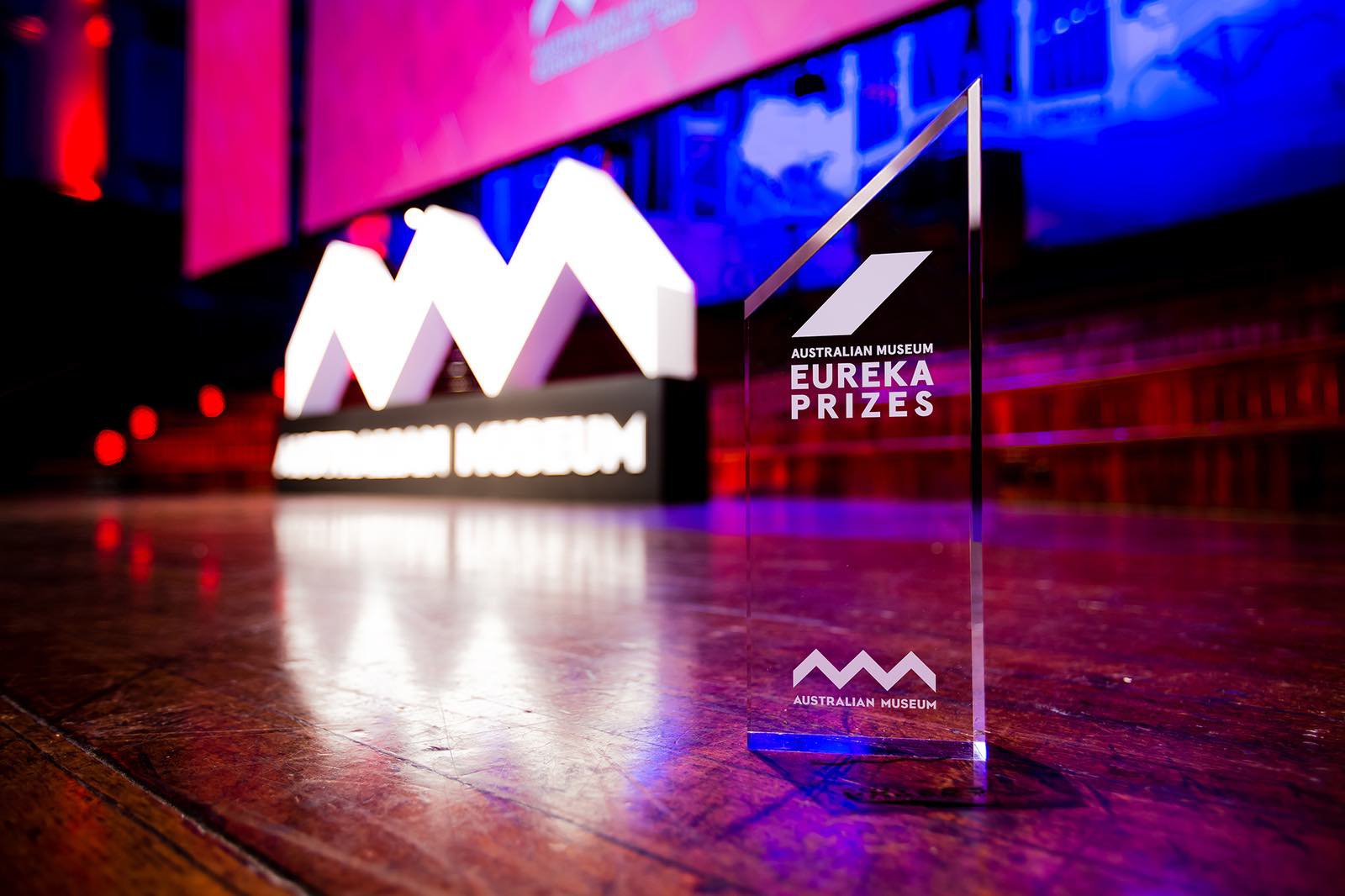2023 Australian Museum Eureka Prizes finalists
55 entries were shortlisted for 18 Australian Museum Eureka Prizes.
On this page...
The Australian Museum (AM) has announced the 55 finalists selected for Australia’s leading science awards, the 2023 Australian Museum Eureka Prizes.
Finalists from almost every state and territory across Australia are in the running for 18 AM Eureka Prizes across four categories: Research and Innovation, Leadership, Science Engagement and School Science.
The AM Eureka Prizes are the nation’s premier science awards, celebrating achievement across a broad spectrum of science, from environmental to innovative technologies, citizen science, leadership and mentoring.
Learn about the 2023 AM Eureka Prizes finalists.
Research & Innovation
NSW Environment and Heritage Eureka Prize for Applied Environmental Research
University of Technology Sydney; NSW Department of Planning and Environment; and Central Coast Council

© Australian Museum
Poor water quality at beaches negatively impacts both ecosystem and human health, but the causes are often unknown. Scientists used cutting-edge molecular microbiological tools to pinpoint causes of contamination and collaborated with state and local government agencies on a sewer network remediation program, improving water quality at popular NSW beaches.
University of Technology Sydney and South East Water

© Australian Museum
The Sustainable Wastewater Treatment Team has developed new technology to address the environmental challenges associated with wastewater treatment. Their on-site, closed-loop system prevents pollution – including antibiotic resistance genes, microplastics and ‘forever chemicals’ – from entering the environment. The technology also cuts waste discharge, carbon emissions and the physical footprint of treatment tanks.
UNSW and NSW Department of Planning and Environment

© Australian Museum
The Waterbirds Aerial Survey Team has conducted one of the largest and longest-running wildlife surveys in the world. As well as influencing the Murray-Darling Basin Plan and nomination and management of Ramsar-listed wetlands, their data has contributed to the gazettal of three new national parks, and conservation of waterbirds and freshwater ecosystems, including rivers.
Australian Institute of Botanical Science Eureka Prize for Excellence in Botanical Science
UNSW

© Australian Museum
Professor David Keith has created a new universal framework classifying ecosystems based on their shared ecological processes. This tool, adopted by the United Nations and already applied in Australia, has been instrumental in formulating effective conservation strategies and helps maintain plant diversity in the face of accelerating environmental change.
Royal Botanic Gardens Victoria

© Royal Botanic Gardens Victoria
Dr Noushka Reiter leads an internationally recognised orchid conservation program, which has bolstered the populations of 14 endangered species by up to 260%. Using innovative methods to study pollinators and symbiotically propagate over 20,000 plants across 80 endangered species, her work safeguards Australia's unique botanical diversity, providing a blueprint for global plant conservation.
Australian Tropical Herbarium at James Cook University

© James Cook University
The Tropical Mountain Plant Science Project is working to preserve unique plant species found in Australia’s cloud forests before they are impacted by climate change. By building conservation reserves of at-risk wild populations in botanic gardens and seed banks, this multidisciplinary team is ensuring protection of Australia’s tropical flora for future generations.
Aspire Scholarship Eureka Prize for Excellence in Interdisciplinary Scientific Research
University of Adelaide; Women's and Children's Hospital, Adelaide; 4D Medical Pty Ltd; and Monash University

© Australian Museum
To treat children with cystic fibrosis (CF), it is critical to know the location and extent of abnormal airflow. Combining expertise across physics, medicine and engineering, this interdisciplinary team developed a novel medical imaging method called X-ray Velocimetry. With further development it promises to help detect, treat and monitor CF and other lung diseases.
University of Adelaide

© Australian Museum
Heatwaves – intensified by climate change – pose many health and safety risks, especially for vulnerable populations. Leveraging expertise in sociology, epidemiology and meteorology, the Extreme Heat and Health Adaptation Team systematically assessed these risks to develop evidence-based life-saving interventions, guidance and targeted educational resources, enabling Australia’s flagship heatwave warning system.
University of Wollongong

© Australian Museum
Little is known about the Denisovans, an ancient group of humans once widespread across Asia. Collaborating with archaeologists and geneticists, The Time Travellers combined new methods of dating sediments with clues collected from ancient DNA, fossils and artefacts to create a timeline of their activities and the climatic conditions they experienced.
Australian Research Data Commons Eureka Prize for Excellence in Research Software
Australian National University

© Australian Museum
Dr Bui and Professor Lanfear combined their computer science and biology expertise to develop IQ-TREE2 – free, open-source software that turns DNA data into crucial evolutionary insights. Used to investigate everything from early life forms to the virus causing the COVID-19 pandemic, this user-friendly tool, first released in 2019, has become a staple for life scientists worldwide.
University of Sydney

© Australian Museum
GPlates is open-source software that brings geodata to life by tracing tectonic shifts over geological time. Through virtual models of Earth’s systems, GPlates helps researchers better understand our planet's complex geological history and possible future. Broadly applied across science, education and industry, it has contributed to more than 1500 research papers.
University of Melbourne

© University of Melbourne
Created by statisticians, bioinformaticians and computational biologists, mixOmics is a statistical toolkit that gives researchers across academia and industry the ability to analyse large, complex datasets from cutting-edge biotechnologies. The software allows scientists to integrate data from a wide range of sources into a single, unified view, helping them make significant medical and biological discoveries.
Australian Infectious Diseases Research Centre Eureka Prize for Infectious Diseases Research
University of Queensland and Prince Charles Hospital

© Australian Museum
Antibiotic resistance is one of the biggest threats to global health, as ‘superbugs’, such as the multi-drug-resistant bacteria Pseudomonas aeruginosa, dodge even last resort therapies. Using a ground-breaking approach to remove an antibody that counter-intuitively protects the bacteria from the immune system, this research has led to improved health outcomes in critically ill patients.
University of Melbourne and Peter Doherty Institute for Infection and Immunity

© Australian Museum
The Corona Queens, a three-person research team, has advanced the medical community’s understanding of how the human immune system fights against COVID-19. The team’s work on immune responses in high-risk groups – including children, the elderly, pregnant women and cancer patients – accelerated global research into infection and vaccination.
University of Melbourne and UNSW

© Australian Museum
The Immunity to COVID team shed crucial light on the role of antibodies in combating COVID-19. Their insights – derived from integrating in-depth virological and immunological studies with mathematical modelling – shaped global vaccination policies and accelerated vaccine distribution. Their unique approach also offers a new method for future infectious
University of Sydney Eureka Prize for Innovative Research in Sustainability
University of Sydney

© Australian Museum
Professor Ali Abbas pioneers circular economy solutions using process systems engineering and clean energy technologies. As founder of the Waste Transformation Research Hub and Australian Circular Economy Conference, he drives research collaborations and advances policy change. He is also responsible for emissions-cutting inventions, including low-carbon concrete and concrete carbon capture.
Monash University and Geoscience Australia

© Australian Museum
The Economic Fairways Mapper Team developed an open-source toolkit to facilitate renewable energy and mineral projects for a net-zero emissions future. It integrates advanced mapping technology and diverse datasets to identify the most sustainable locations for resource development. This work has informed Australian policy, attracted industry investment and is being replicated globally.
UNSW

© UNSW
The current, flawed system for use-by dates contributes to 1.3 billion tonnes of food waste globally each year. To better signal when perishable products can be consumed safely, the UNSW Chandrawati Nanotechnology for Food and Medicine Laboratory has developed patented colour-changing sensors that indicate freshness or spoilage of food products in real time.
ANSTO Eureka Prize for Innovative Use of Technology
University of Adelaide; and OMNI Ultrasound and Gynaecological Care

© Australian Museum
Endometriosis affects one in nine Australian women and people assigned female at birth, who experience significant pain and economic impacts during the six or more years it takes to receive a diagnosis. IMAGENDO is building innovative artificial intelligence capabilities to pair with MRI and ultrasound technology that, with further development, will provide rapid, non-invasive diagnosis.
Monash University and CSIRO

© Australian Museum
Cities will need to find new sources of renewable energy to reduce the impacts of climate change. The Perovskite Solar Window Team has developed a next-generation solar window technology using a class of materials called perovskites. The new use of this material has the potential to transform the windows of urban buildings into power generators.
UNSW

© Australian Museum
Merging ceramic engineering and biofabrication, The UNSW Bone Ink Printing Team has demonstrated the feasibility of using 3D printing technology to construct living cell-laden structures that closely replicate real bones. With potential for directly repairing or replacing patients’ bones, this breakthrough offers substantial promise in the fields of regenerative medicine, orthopaedics and dentistry.
Macquarie University Eureka Prize for Outstanding Early Career Researcher
University of Sydney

© Australian Museum
Dr Fengwang Li has created an affordable and more efficient process for using renewable energy to convert waste carbon dioxide emissions into ethylene, a basic component of plastic. This improved process brings real-world carbon capture and utilisation a step closer, offering emissions-intensive industries a path towards net-zero.
University of Adelaide

© University of Adelaide
Dr Jiawen Li invented a microendoscope as thin as a strand of hair and powerful enough to accurately detect signs of heart disease, a leading cause of death worldwide. The highly-sensitive 3D-printed imaging device has the potential to provide cardiologists with high-resolution and accurate molecular insights not possible from existing technologies.
Macquarie University

© Australian Museum
Associate Professor Noushin Nasiri invented Sun-Watch, a smartphone-connected, wearable device designed to alert users in real-time to UV radiation overexposure. It relies on a nanostructure that allows a large surface area within the minuscule design. Customised to individual skin types, Sun-Watch will soon enter its next research evaluation stage.
Department of Defence Eureka Prize for Outstanding Science in Safeguarding Australia
Queensland University of Technology

© Australian Museum
Through his research in artificial intelligence, Professor Clinton Fookes is enhancing our understanding of human behaviours and automating the analysis of sensors. Using advanced vision and signal processing, he has led the development of new tools to enhance situational awareness and threat detection, bolstering Australia’s national security preparedness.
University of Technology Sydney; Defence Science and Technology Group; and Macquarie University

© Australian Museum
The MetaSteerers Team developed a low-profile, energy efficient and steerable antenna system to help the Australian Defence Force (ADF) gain a crucial advantage in battle. Their unique system allows the ADF to transmit large volumes of data or track suspicious radio activity across a wide bandwidth, while remaining almost invisible to adversaries.
UNSW Eureka Prize for Scientific Research
UNSW

© Richard Freeman
Associate Professor Kate Quinlan and Professor Merlin Crossley have shown how a mutation causing foetal haemoglobin production beyond gestation might benefit patients with blood disorders. They used CRISPR gene-editing technology to demonstrate that a beneficial mutation could be introduced to patients with sickle cell disease, a debilitating condition affecting millions globally.
WEHI

© WEHI
Over more than a decade, Associate Professor Tim Thomas and Professor Anne Voss identified and investigated a complex family of enzymes that contributed to cancer growth but were resistant to drug development efforts. A recent breakthrough from their research is an entirely new class of drugs that can stop the growth of lymphoma cells and liver cancer cells.
University of Sydney and University of Melbourne

© Emlyn Crockett
Using advanced microscope techniques to understand how microbes stick to surfaces, Professor Antonio Tricoli and Professor David Nisbet developed a water-repelling, non-chemical coating that actively hinders surface contamination. They co-founded Nanostraus to commercialise the technology for use in anti-microbial and anti-fouling coatings to help prevent and reduce the toll of future pandemics.
Leadership
Eureka Prize for Emerging Leader in Science
Queensland University of Technology

© Queensland University of Technology
Associate Professor Laura Bray is a rising leader addressing the significant need for new preclinical models in biomedical research. Applying state-of-the-art bioengineering techniques, she has developed sophisticated 3D human tissue models as innovative devices for drug and toxicity testing. Her leadership has been recognised in the scientific, clinical and industry sectors.
University of Sydney

© University of Sydney
As director of the Sydney AI Centre and founder of the Trustworthy Machine Learning Lab, Dr Tongliang Liu leads teams of researchers to ensure artificial intelligence (AI) is more accurate, fair and responsible. His own theories and algorithms, designed to advance trustworthiness, are shaping how AI is developed and applied globally.
University of Sydney

© Australian Museum
Dr Stephanie Partridge harnesses technology and nutrition science to improve youth wellbeing. Putting adolescent experiences at the heart of her research and advocacy, she collaborates with young people to learn how technology can help them live a healthier lifestyle. Her work has informed major public health policies in Australia and globally.
Eureka Prize for Leadership in Science and Innovation
University of Sydney

© Australian Museum
Professor Michael Kassiou is driving new approaches to drug discovery for challenging health conditions such as brain disorders and cardiovascular disease. Combining medicinal chemistry, disease biology and advanced imaging, his discoveries have been commercialised by three start-ups. As a leader and mentor, he also fosters the next generation of medical innovators.
University of Western Australia

© Australian Museum
Professor Peter Quinn is a world-renowned astrophysicist who led discoveries about the nature of dark matter. He played a leading role in Australia's successful bid to host the Square Kilometre Array telescope, and supports the next generation of astronomers as Founding Director of the International Centre for Radio Astronomy Research.
University of Technology Sydney Eureka Prize for Outstanding Mentor of Young Researchers
Deakin University

© Australian Museum
Professor Maria Forsyth is committed to developing Australia's capability in materials science and engineering through mentoring students, postdoctoral fellows and early career researchers. She has been pivotal in integrating her mentees into academic and applied research organisations around the world, and recognises them as future educators, problem solvers and leaders.
University of Sydney

© Australian Museum
Strategically and empathetically mentoring over 150 researchers, Professor Kate Jolliffe has nurtured the careers of many leaders. She established both national and international supramolecular chemistry networking groups, which fostered collaborations, as well as promoting gender equality and strengthening Australia's global research standing in this field.
University of Sydney

© Australian Museum
Professor Renae Ryan has advanced the careers of many young researchers through mentorship, networking and advocacy. Driving university-wide gender equity initiatives and founding the Sydney Medical School Early Career Researcher Network, she helped increase representation of women at professor level in her faculty, fostering a more inclusive and supportive academic environment.
Science Engagement
Department of Industry, Science and Resources Eureka Prize for Innovation in Citizen Science
Western Sydney University; La Trobe University and University of New England

© Australian Museum
The 1 Million Turtle Team’s Community Conservation Program uses the TurtleSAT app to involve citizen scientists in hands-on activities such as habitat construction and restoration, nest protection and fox management. Emphasising STEM literacy and First Nations knowledge, the Australia-wide program has influenced policy, and saved over 1000 freshwater turtles and 200 nests in 2022 alone.
Murdoch University

© Australian Museum
Dr Grey Coupland's Miyawaki Forest Outreach Program immerses students in climate and biodiversity action. With guidance and mentorship from Dr Coupland, participants plant and monitor dense native pocket forests in their own school. The young citizen scientists learn valuable STEM skills, and can see the tangible impact of their environmental stewardship.
Aquamarine Australia

© Aquamarine Australia
Since its inception, the Sea Slug Census has seen over 3000 divers, snorkellers and ocean enthusiasts photograph more than 930 species of slugs, including some never before documented in Australian waters. This project feeds into global biodiversity databases to allow scientists to detect important changes in the distribution of Australia’s sea slugs.
Celestino Eureka Prize for Promoting Understanding of Science
University of Tasmania

© Photograph Tasmania
From viral videos to record-breaking Zoom lectures, multi-award-winning neuroscientist and science communicator Dr Lila Landowski reaches across mediums and platforms to deliver her message of scientific progress for a brighter world. Her relatable style draws on the inspiring story of her own journey into STEM, engaging an audience of millions globally.
Deakin University

© Australian Museum
In the face of dual climate change and extinction crises, Professor Euan Ritchie is a sought-after voice, writing popular articles and influential opinion pieces, live-tweeting field research and offering insight in radio interviews. He guides policy and fosters public understanding of the natural world and how science can help overcome significant environmental challenges.
UNSW

© Australian Museum
Professor Toby Walsh is a world-renowned authority in artificial intelligence (AI), exploring subjects such as self-driving cars and autonomous weapons. On television, in books and at academic forums he leads conversations about our AI-driven future: what it will look like, how we can prepare and what we should be wary of.
Australian Museum Eureka Prize for Science Journalism
Griffith Review

© Australian Museum
Jo Chandler’s longform essay Buried Treasure follows the most ambitious Australian Antarctic endeavour in a generation. The award-winning journalist had tracked the story for over a decade before pitching her article, which skilfully navigates urgent questions about science, our heating planet and the human condition.
Published in the Griffith Review (Edition 77: Real Cool World), 2 August 2022
Nature

Nature
Image: Supplied© Australian Museum
In her article, 'She was convicted of killing her four children. Could a gene mutation set her free?’, Nicky Phillips skilfully guides readers through the complex genomics research presented at a new judicial inquiry into the convictions of Kathleen Folbigg. Published just before the first hearing, it became one of Nature’s most-read online stories that week.
Published in Nature, 9 November 2022
Australian Broadcasting Corporation

© Australian Broadcasting Corporation
As ABC’s national science, technology and environment reporter, Michael Slezak regularly delivers accurate, engaging coverage of scientific advances to millions of Australians. From NASA missions in central Australia, to the ecological impact of gas development projects and the politics of climate change – his reports are newsworthy, accessible and impactful.
Aired on ABC TV and published online 18 May, 11 June and 4 October 2022
Department of Industry, Science and Resources Eureka Prize for STEM Inclusion
Engineering Aid Australia, University of Sydney and Curtin University

© Australian Museum
The Indigenous Australian Engineering School strategically supports First Nations students across Australia to complete STEM studies at secondary and tertiary levels, opening up career opportunities in engineering and technology. Of the 247 students who attended annual on-campus events since 2018, 71 have enrolled in a STEM-related course at an Australian university.
Children’s Discovery

© Australian Museum
Designed in collaboration with STEM experts, Little Bang Discovery Club ignites a curiosity for science in children from preschool age up – more than half of whom live in regional areas. The program reaches over 80,000 kids a year in the playful and familiar environment of their local public library.
.

© Australian Museum
Based in Tasmania, the volunteer-run radio show and podcast, That’s What I Call Science reaches over 10,000 people a week with programming designed to increase representation of diverse voices in STEMM. Since 2019, they’ve given the science community a platform to upskill and create engaging and accessible content for a breadth of listeners.
School Science
University of Sydney Sleek Geeks Science Eureka Prize - Primary
Wollongong Public School, NSW

© Australian Museum
Are the trees sharing secrets with each other beneath our feet? Sophia and Scarlett think so, and it’s a concept they explore in their educational and engaging video Intriguing InTREEnet, which uses timelapse animation, graphics and drone footage to explain mycelium networks and their role in the forest.
Shellharbour Public School, NSW

© Australian Museum
The human eye discerns more shades of green than any other colour. In Nurinnurun-Green: The SEEN Colour, Chase combines drone video, claymation and stop-motion graphics to explain how the retina and the colour green (or Nurinnurun, in the local Dharawal language) have impacted human evolution and survival.
PLC Sydney, NSW

© Australian Museum
In Green Infrastructure: The Solution to Coastal Erosion, Anna uses humour and graphics to explain the phenomenon of coastal erosion and its causes in an accessible and entertaining way. She also highlights how green solutions such as vegetation and natural barriers can be used to protect homes and assets.
University of Sydney Sleek Geeks Science Eureka Prize - Secondary
Ashfield Boys High School, NSW

Ashfield Boys High School, NSW
Image: Supplied© Australian Museum
In The Crazy World of Chlorophyll, Darcy investigates the dominant colour in nature: green. With the help of animation and stop-motion, he explains why so many leaves and plants share the same traits, visualises the photosynthesis process and shares just how many living things rely on the superpower pigment, chlorophyll.
Lauriston Girls' School, Vic

Lauriston Girls' School, Vic
Image: Supplied© Australian Museum
Antioxidant-rich green tea has been known to reduce cell damage in the body. In their animation, How can drinking green tea prevent Alzheimer's Disease? Alison and Kathlin explain why the ancient Chinese drink may also be an effective natural preventative for memory loss and physical deterioration associated with Alzheimer’s disease.
Bayview Secondary College, Tas.

Bayview Secondary College, Tas.
Image: Supplied© Australian Museum
The combined challenges of population growth and climate change will require innovative, green solutions to food production. In Aquaponics: Tomorrow's Farming, Jacob explains how aquaponics – a form of fish farming – relies on the symbiotic relationship between fish, bacteria and plants to create a holistic, sustainable food system.
University of Sydney Sleek Geeks Science - Highly Commended
Sleek Geeks Science Highly Commended - Primary School
- Plant Kitchen, Isla B., Glenmore Road Public School, NSW
- The Greatest Green, Abelia C., Abbotsleigh Junior School, NSW
- Why Don't Kids Eat Their Greens?, Kaelyn C., PLC Sydney, NSW
- Astonishing Auroras, Saalih D., Homeschooled, QLD
- A Little Green Stowaway, Charlotte M,. PLC Sydney, NSW
- Smart Farming, Madoc T., Knox Grammar Preparatory School, NSW
- The ‘Dirty’ Secret: Green Farming, Alessandro V., Holy Family Parish School, NSW
- Green Catastrophe, Ruby W., PLC Sydney, NSW
Sleek Geeks Science Highly Commended - Secondary School
- Why are Green Screens Green, Tyler B., Newcastle Grammar School, NSW
- Green Hydrogen: The Future of Clean Energy, Zander C., and Jonathan SC., Oakhill College, NSW
- The Radium Girls - Explained, Hannah M., St Clare's College Waverley, NSW
- Green Space - The Science of Our Surroundings, Iestyn R., St Johns Anglican College, Forest Lake, QLD
- R'eco'nsider - The Revolutionary Way to Write, Grace S., Perth Modern School, WA
- Green Chemistry: The Future of Sustainability, Marko S., Oakhill College, NSW
- Detecting Life on Exoplanets, Ronan T., Oakhill College, NSW
- Green Glow in the UV, Neomi V., Abbotsleigh, NSW


